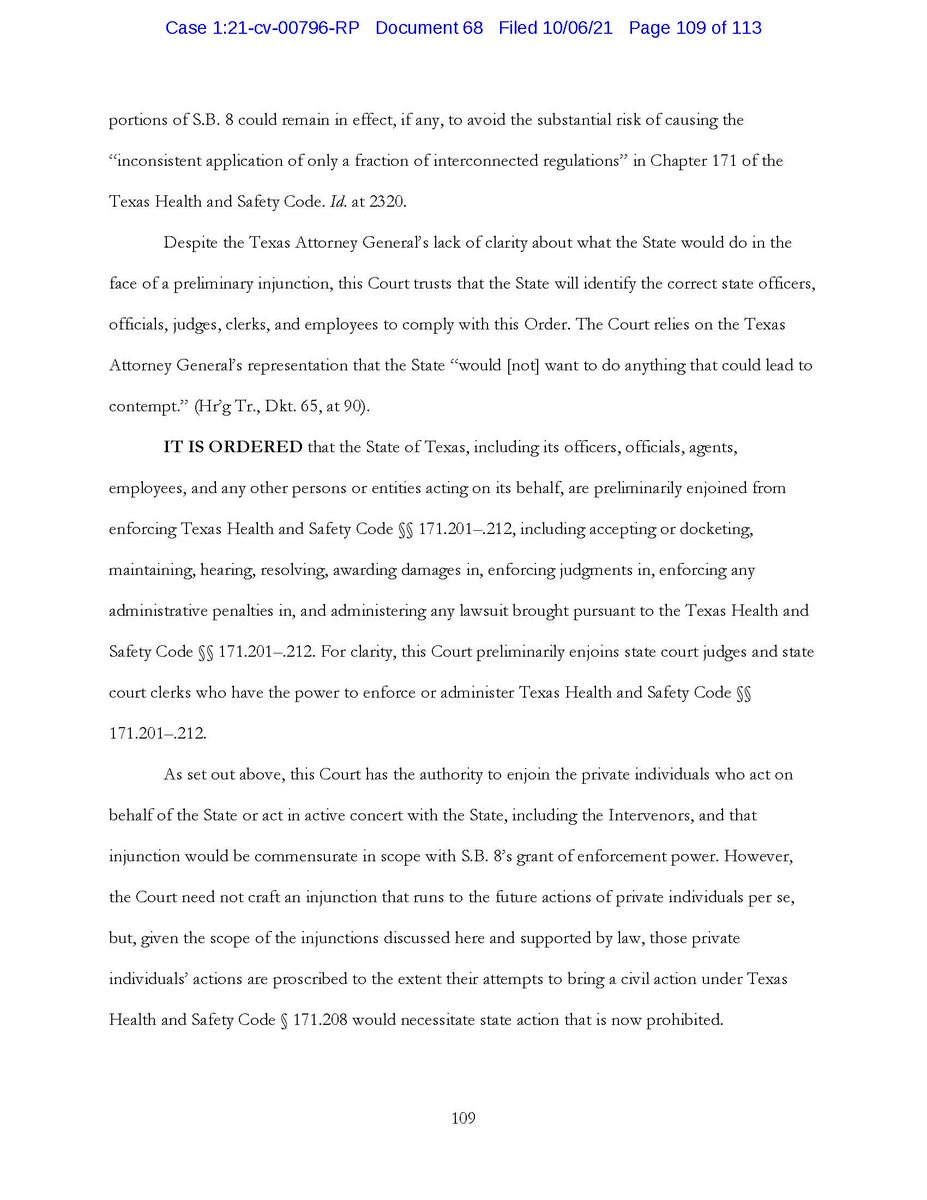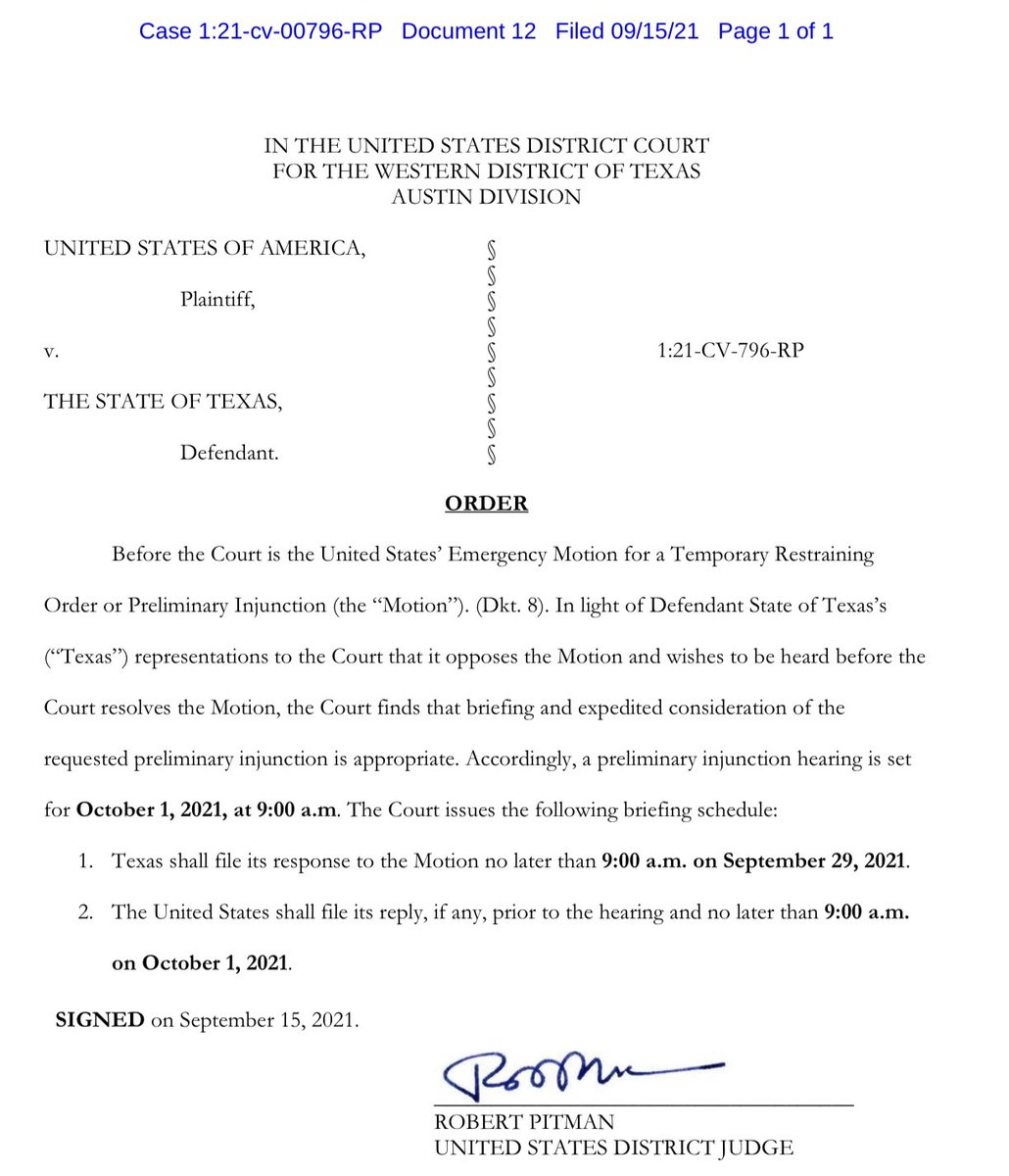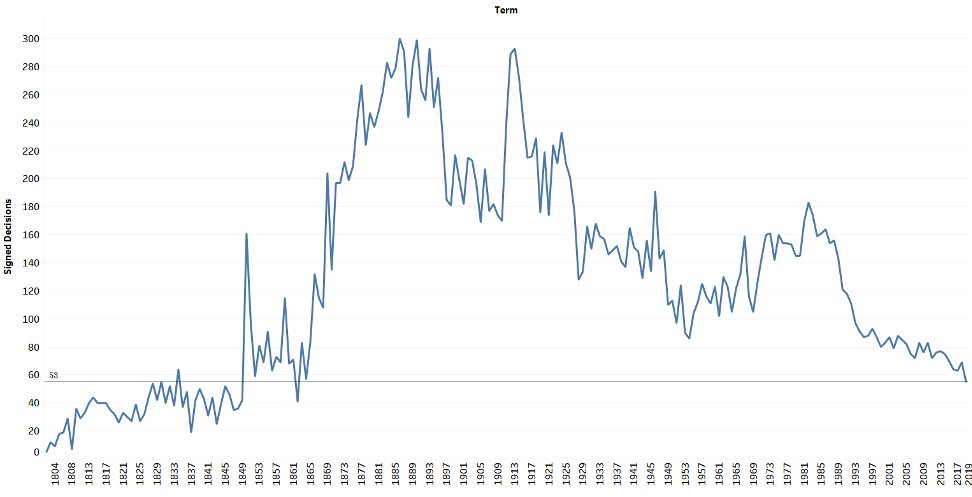
#BREAKING: #SCOTUS agrees to hear *both* the providers' *and* the federal government's challenge to #SB8 on a SUPER-expedited basis (argument on November 1), but "defers" DOJ's request to put #SB8 back on hold in the interim.
Justice Sotomayor dissents from the Court's decision to *defer* DOJ's request to put #SB8 back on hold. No other writings. Merits arguments in 10 days:
supremecourt.gov/opinions/21pdf…
supremecourt.gov/opinions/21pdf…
Importantly, the Court *limited* the grant of certiorari to whether the US can sue "the State, state court judges, state court clerks, other state officials, or all private parties to prohibit S.B. 8 from being enforced." So the *substance* of #SB8 is *not* before the Court.
FWIW, this is #SCOTUS moving *stunningly* fast. The last time I can recall so little time (here, 10 days) between the Court agreeing to take up a case and the oral argument was in December 2000, in Bush v. Gore.
• • •
Missing some Tweet in this thread? You can try to
force a refresh














